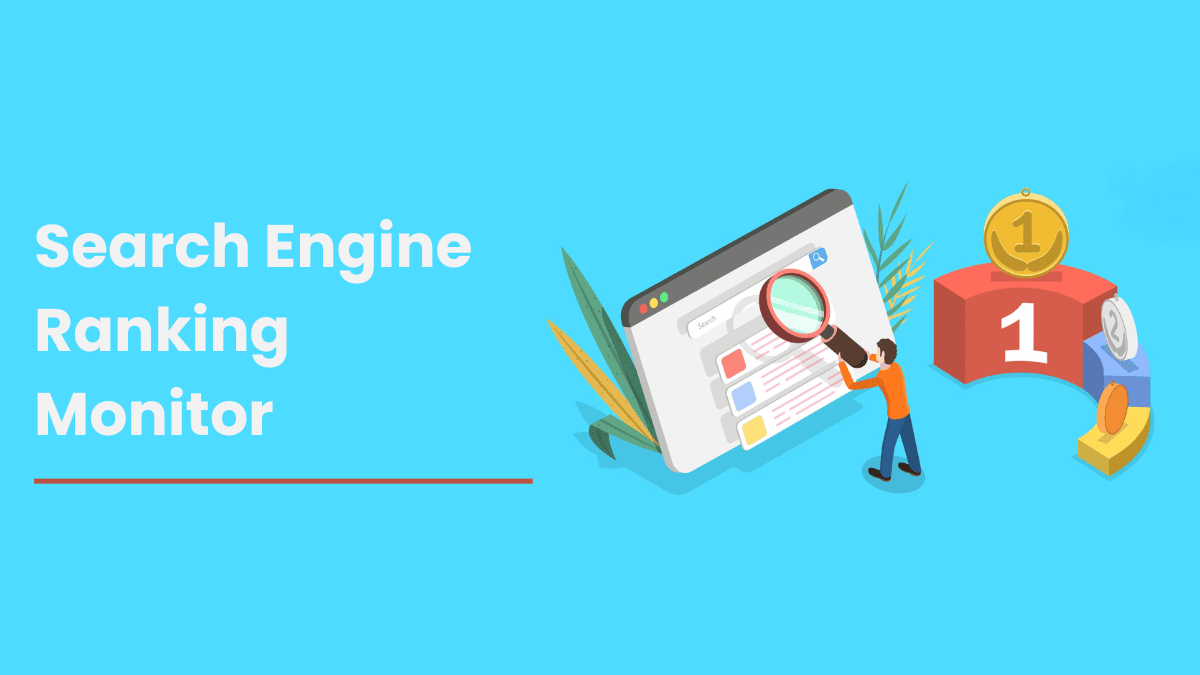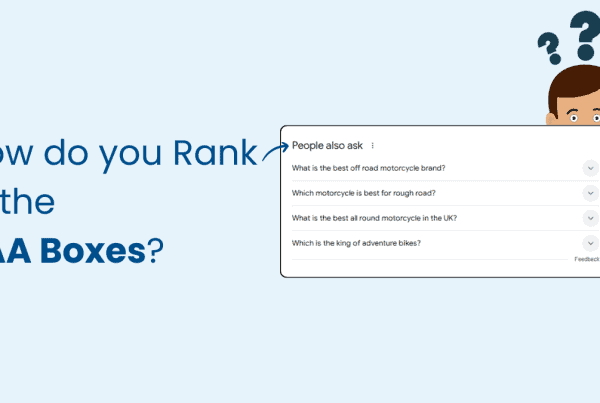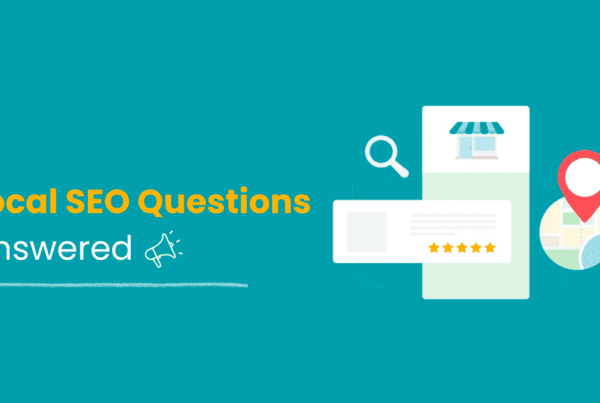
You have to monitor the ranking of your website to know whether a change in strategy helps or damages the overall traffic. However, even if you don’t change anything on the website, the rankings may change daily or hourly. So, it is important to track the changes in ranking over time.
Therefore, to know how your project (website) is performing on SERPs you have to monitor the search engine ranking.
Many SEO tools monitor various SEO factors and show the SEO ranking reports. These ranking monitors show the site’s rank when the last time the tool fetched these details.
However, these ranks fluctuate so frequently that even an hour later the rank may go downwards or upwards. Most of the time, these tools show exact and accurate results, but not all the time.
This blog will provide you with all the information regarding the Search Engine Ranking Monitor, its importance, and also some reputed tools to monitor the search engine ranking.
What are Search Engine Rankings?
Search engine rankings refer to the position at which a web page ranks on a search engine result page (SERP). Here, the position starts from number 1 and continues wherever a search engine displays.
When a user enters keywords or phrases into search engines like Chrome, Safari, or Yahoo, the search engine algorithms determine the most relevant site to display and rank them from the most to least relevant.
When a site appears at the top, it will receive more traffic from search engine users. There are a lot of factors that influence search engine rankings, including the quality of content, keywords, backlinks, page loading speed, mobile-friendliness, reputation, and user experience.
What is Search Engine Ranking Monitoring?
Search Engine Ranking Monitoring means keeping track of where a website or specific web pages appear in search engine results when people search for certain keywords. The main purpose is to see how visible and well-performing the website is in search engine results.
Here are what factors Search Engine Ranking Monitoring includes:
- Rank Tracking: Monitors the ranking of specific keywords over time.
- SERP Features Tracking: Tracks the presence of SERP features like featured snippets, local packs, and knowledge graphs.
- Competitor Analysis: Analyzes the ranking of competitors for the same keywords.
- Mobile vs. Desktop: Differentiates between mobile and desktop rankings.
- Geolocation Tracking: Monitors rankings based on different geographic locations.
Why Search Engine Ranking Monitoring is Crucial? (Benefits)
Search Engine Ranking Monitoring is very important for several reasons that help improve your online presence and SEO strategy. Here’s why it’s essential:
- Measure SEO Performance
- Identify Opportunities and Issues
- Stay Ahead of Competitors
- Adapt to Algorithm Changes
- Track Keyword Performance
- Optimize for Local and Mobile Search
- Measure ROI
- Improve Content Strategy
- Enhance User Experience
- Gain Insights from SERP Features
Best Search Engine Ranking Monitor Tools
Several SEO tools offer the features we listed above, including rank tracking, SERP features tracking, competitor analysis, mobile vs. desktop differentiation, and geolocation tracking. Here are some of the top tools:
Google Search Console
Google Search Console is a free web service by Google that helps publishers and marketers monitor site health and performance in Google search. Google Search Console provides data directly from Google, making it highly accurate.
![[your-subject] - EyeUniversal Google Search Console](https://www.eyeuniversal.com/wp-content/uploads/2024/07/image-14-814x1024.png)
Search Engine Rankings Monitoring:
- Rank Tracking: Google Search Console shows impressions, clicks, and average position for your site’s pages. It also shows keywords for which your pages are ranking. It helps us find new opportunities as well.
- SERP Features Tracking: It provides insights into how your pages appear in search results.
- Mobile vs. Desktop: Google Search Console provides data for both.
- Geolocation Tracking: Limited, but you can filter data by country.
- Index Coverage: Google Search Console shows which pages are indexed and any issues preventing indexing. For example, if a page isn’t showing up in search results, you can troubleshoot it.
- URL Inspection Tool: You can check how Google sees a specific URL. If your homepage isn’t ranking well, use this tool to diagnose issues.
- Integration with other Google tools: Seamlessly integrates with Google Analytics.
Google Search Console is entirely free and offers the most accurate data. Additionally, there are many connected tools and platforms, and when they are synced together create a complete ecosystem. Which offers more than just Search engine ranking monitoring.
SEMrush
SEMrush is a comprehensive toolkit for digital marketing professionals and agencies. It offers features for keyword research, backlink analysis, content optimization, competitor research, advertising, social media, and more. SEMrush provides reliable data, but like any tool, it’s essential to validate the results with other sources.
![[your-subject] - EyeUniversal SEMrush](https://www.eyeuniversal.com/wp-content/uploads/2024/07/image-15.png)
Monitoring Search Engine Rankings:
- Rank Tracking: SEMrush allows you to track keyword rankings over time. You can monitor your website’s performance for specific keywords and see how they change.
- SERP Features Tracking: SEMrush identifies featured snippets, local packs, and other SERP features related to your keywords.
- Competitor Analysis: You can analyze your competitors’ websites to see which keywords they rank for. For instance, if you’re in the fitness industry, SEMrush can reveal the keywords driving traffic to your competitors’ sites.
- Mobile vs. Desktop: SEMrush provides data for both mobile and desktop search results.
- Geolocation Tracking: You can track rankings in specific locations or globally.
- Backlink Analysis: SEMrush identifies backlinks pointing to your site. If you notice a high-authority website linking to your content, you can explore similar opportunities.
- Site Audit: SEMrush checks your website for technical issues (e.g., broken links, slow loading times). Fixing these issues can improve your rankings.
SEMrush offers a wide range of features beyond monitoring search engine ranking, however some features may require time to master.
Ahrefs
Ahrefs is a trusted SEO tool for keyword research, competitor analysis, and Google Ad optimization. It helps you understand your website’s performance and improve organic search traffic. Ahrefs provides near-to-accurate data, especially for backlink analysis and keyword research.
![[your-subject] - EyeUniversal Ahrefs](https://www.eyeuniversal.com/wp-content/uploads/2024/07/image-16.png)
How it helps in Search Engine Rankings Monitoring:
- Rank Tracking: Ahrefs tracks your keyword rankings over time. If you notice a drop in rankings, you can investigate and make improvements.
- SERP Features Tracking: It identifies featured snippets, knowledge panels, and other SERP elements.
- Competitor Analysis: Ahrefs helps you analyze competitors’ backlinks, keywords, and content strategies.
- Mobile vs. Desktop: You can view rankings separately for mobile and desktop searches.
- Geolocation Tracking: Ahrefs provides geolocation-specific data.
- Backlink Analysis: Ahrefs shows you who is linking to your site and your competitors. For example, if you’re running an e-commerce store, you can find authoritative websites that might be interested in featuring your products.
- Keyword Research: Ahrefs provides keyword ideas and search volume data. If you’re launching a new product, you can use Ahrefs to discover relevant keywords to target.
- Content Gap Analysis: Ahrefs compares your content with competitors. If you’re a travel blogger, you can identify topics your competitors cover but you haven’t yet explored.
Ahrefs offers all the required features but it is also on the pricier side. The free version has limitations compared to the paid plans.
SE Ranking
SE Ranking is an SEO platform tailored for agencies and in-house teams. It offers features like rank tracking, website audit, backlink checking, and competitor analysis. SE Ranking provides reliable data for keyword tracking and website health.
![[your-subject] - EyeUniversal SE Ranking](https://www.eyeuniversal.com/wp-content/uploads/2024/07/image-17.png)
How SE Ranking can help in Search Engine Rankings Monitoring:
- Rank Tracking: SE Ranking monitors keyword positions. If you’re a real estate agency, you can track how your property listings rank for terms like “luxury condos.”
- SERP Features Tracking: It identifies SERP features related to your keywords.
- Competitor Analysis: SE Ranking helps you understand your competitors’ strategies. If a rival travel blog ranks well for “solo travel tips,” you can learn from their approach.
- Mobile vs. Desktop: You can track rankings separately for mobile and desktop.
- Geolocation Tracking: SE Ranking provides geolocation-specific data.
- Content Optimization: SE Ranking provides content recommendations. If you’re writing about “digital marketing trends,” SE Ranking can suggest related terms.
- Website Audit: SE Ranking checks your site for technical issues. If your travel blog has broken links, SE Ranking will flag them.
SE Ranking offers competitive pricing and provides reliable rank tracking. It can also help you stay ahead of the competition. However, some users find the interface less polished.
Moz
Moz offers SEO tools, data, and solutions for digital marketing strategies. It helps you measure, fix, and improve your site’s performance in Google Search. Moz provides reliable data, especially for on-page SEO and technical audits.
![[your-subject] - EyeUniversal Moz](https://www.eyeuniversal.com/wp-content/uploads/2024/07/image-18.png)
How it helps:
- Rank Tracking: Moz Pro tracks keyword rankings and provides insights into changes. Moz tracks your keyword rankings. For instance, if you’re an online store selling handmade jewelry, Moz can show how your product pages rank for relevant keywords like “handcrafted earrings.”
- SERP Features Tracking: It identifies SERP features related to your keywords.
- Competitor Analysis: Moz helps you analyze competitors’ rankings and backlinks.
- Mobile vs. Desktop: Moz provides data for both mobile and desktop searches.
- Geolocation Tracking: You can track rankings based on specific locations.
- Technical SEO Audit: Moz scans your website for issues affecting SEO. If your site has slow page load times, Moz will flag it.
- Content Optimization: Moz suggests improvements for your content. If you’re writing a guide on “organic gardening,” Moz can recommend related terms to include.
- Backlink Analysis: Moz identifies backlinks to your site. If a gardening blog links to your organic gardening article, it can boost your authority.
Moz is more focused on improving website visibility and performance and emphasizes ethical SEO practices. However, the free version has restrictions, and some features are less robust compared to other tools.
Which Search Engine Ranking Monitoring Tool Should You Choose?
As you can see in the table below, almost all the above-listed tools offer search engine ranking monitor features:
| Tool | Rank Tracking | SERP Features Tracking | Competitor Analysis | Mobile vs. Desktop | Geolocation Tracking |
| SEMrush | Yes | Yes | Yes | Yes | Yes |
| Ahrefs | Yes | Yes | Yes | Yes | Yes |
| Moz | Yes | Yes | Yes | Yes | Yes |
| Google Search Console | Yes | Yes | NA | Yes | Yes |
| SE Ranking | Yes | Yes | Yes | Yes | Yes |
However, the best tool depends on your needs, budget, and preferences. You should consider your priorities (e.g., accuracy, features, cost) when choosing the right tool for monitoring search engine ranking!
If you are looking for accuracy but can deal with competitor analysis Google Search Console is the best choice, it is also completely free. But if you are looking for an all-in-one tool and can afford to invest some funds you can go with Ahref or SEMrush.
We have introduced just 5 best tools but there are many more available in the market, some of the known ones are Serpstat, Rank Ranger, SpyFu, Advanced Web Ranking, AccuRanker, BrightEdge, etc. These tools provide almost all the necessary features that help you monitor and improve your search engine rankings
Process of Search Engine Ranking Monitoring
Let’s break down how you can do this, using tools like Google Search Console, SEMrush, Ahrefs, SE Ranking, and Moz.
Step 1: Tracking Your Rank
- First, you pick out the keywords that matter most to your business or audience.
- Then, you use tools like SEMrush or Ahrefs to keep an eye on how those keywords rank over time. In SEMrush, you can set up a project and add your important keywords. It’ll track them daily and update you on how they’re doing.
Step 2: Monitoring SERP Features
- Next, you figure out which special features on search engine results pages (SERPs) are important for your keywords, like featured snippets or local packs.
- Tools like Moz or SE Ranking can help you see if and how your keywords show up in these features.
Moz can show you if your keywords trigger things like featured snippets, which helps you tweak your content to appear there more.
Step 3: Checking Out Your Competition
- After that, you look at what your competition is up to in search results.
- Tools like Ahrefs or SEMrush can show you what keywords your competitors are ranking for and how they’re doing.
Step 4: Mobile vs. Desktop
- It’s important to see how your rankings differ between mobile and desktop searches.
- Tools like SE Ranking and Google Search Console can help you see this difference. Google Search Console can provide reports that let you see if your site performs differently on mobile compared to desktop.
Step 5: Tracking Different Locations
- If your business is focused on specific areas, you’ll want to see how your keywords rank in those places.
- Tools like SEMrush or Moz can help you keep track of this. In SEMrush, you can set up different projects for different locations to see how your keywords rank in each one.
By using these tools and following these steps, you can keep an eye on your search engine rankings, understand how your SEO efforts are doing, and make smart decisions to improve your visibility online.
Search Engine Ranking Monitoring in a Nutshell
Monitoring search engine rankings is crucial for a successful SEO strategy. By understanding and monitoring rankings, you can improve your website’s visibility, stay ahead of competitors, and optimize your content.
Tools like Google Search Console, SEMrush, Ahrefs, etc, offer needed features for this purpose. You just have to choose the one that fits your needs best. Using these tools, you can make smart decisions to boost your rankings, attract more traffic, and achieve your SEO goals.



